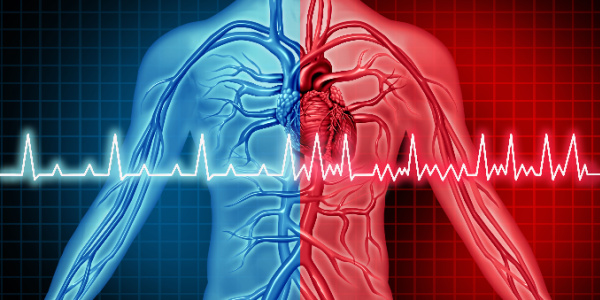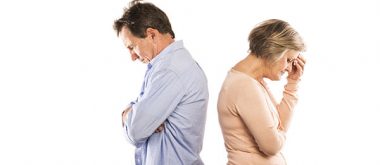After menopause, an estimated one in four women will develop irregular heart rhythms – called atrial fibrillation – during their lifetime, with stressful life events and insomnia being the main causes, according to a new study published in the Journal of the American Heart Association, an open-access, peer-reviewed journal of the American Heart Association. Atrial fibrillation can lead to blood clots, stroke, heart failure, or other cardiovascular complications. It primarily affects older adults, and more than 12 million people in the U.S. alone are expected to develop atrial fibrillation by 2030, according to the American Heart Association.
How Poor Sleep and Stress Promote Irregular Heart Rhythms in Postmenopausal Women
Researchers reviewed data from more than 83,000 questionnaires from women ages 50 to 79 from the Women’s Health Initiative, a large U.S. study. Participants were asked a series of questions in key categories: stressful life events, their feelings of optimism, social support and insomnia. Questions about stressful life events covered topics such as the loss of a loved one; Illness; Divorce; financial pressures; and domestic, verbal, physical or sexual abuse. Questions about sleep habits included, for example, whether the participants had problems falling asleep, woke up several times during the night, and what their overall sleep quality was like. The questions about the women’s attitude to life and social support focused on having friends with whom one could talk in and about difficult or stressful situations; a feeling of optimism, such as believing that good things are on the horizon; and help with daily tasks.
During the approximately ten-year follow-up period, the study found that approximately 25% or 23,954 women developed atrial fibrillation. A two-cluster system (the stress cluster and the strain cluster). For each additional point on the insomnia scale, the likelihood of developing atrial fibrillation increases by 4%. Likewise, for each additional point on the life events stress scale, there is a 2% higher chance of having atrial fibrillation. The heart-brain connection has long been established in many diseases. Irregular heart rhythms are a disorder of the electrical conduction system and are susceptible to hormonal changes resulting from stress and poor sleep. These common causes likely underpin the link between stress and insomnia in atrial fibrillation.
Researchers found that stressful life events, poor sleep, and feelings such as depression, anxiety, or feeling overwhelmed by circumstances are often linked. It’s hard to say whether these factors gradually accumulate over the years, increasing the risk of irregular heart rhythms as women age. Chronic stress has not been consistently linked to atrial fibrillation, and the researchers note that a limitation of their study is that it relied on patient questionnaires used at the start of the study. Further research is needed to confirm and evaluate these associations and to determine whether tailored stress reduction interventions could alter the risk of atrial fibrillation.
Women Who Eat Alone Are More Likely to Have Heart Problems
As women age, the risk of cardiovascular disease (CVD) increases more than men, largely due to reduced levels of estrogen, which regulates vascular function. Therefore, much research focuses on different risk factors. Loneliness could also play a role. A study suggests that older women who eat alone have an increased risk of heart disease.
Recent changes in society have led to more people eating alone than ever before. One of the main reasons is the increasing number of single-person households. Social distancing measures introduced in response to the COVID-19 pandemic have further limited the sharing of shared meals. Additionally, mobile food delivery platforms are becoming increasingly popular, further motivating people to eat alone. As more people eat alone, there are health concerns. A previous study reported that higher frequency of eating alone was associated with a higher risk of abdominal obesity and high blood pressure. When eating alone, people tend to eat faster, which often leads to an increase in body mass index, waist circumference, blood pressure, and blood lipid levels; Factors that can increase the risk of developing metabolic syndrome and cardiovascular disease. When people eat alone, it can also impact their mental health. Depression can also have a negative impact on heart health.
Although these results suggest that eating alone is a risk factor for cardiovascular disease in older women, few studies have examined the association between eating alone and the prevalence of cardiovascular disease. Researchers in this study of nearly 600 menopausal women over the age of 65 sought to compare health behaviors and nutritional status between older women who eat alone and those who eat with others, and the association between eating alone and the To investigate the prevalence of cardiovascular diseases and their risk factors. Based on the results of this study, researchers concluded that older women who ate alone had poorer nutrition knowledge and habits. Specifically, it was found that older women who ate alone had lower intakes of energy, carbohydrates, fiber, sodium and potassium than those who ate together. In addition, older women who ate alone were 2.58 times more likely to suffer from angina, a type of chest pain caused by reduced blood flow to the heart and a symptom of coronary artery disease.
This study suggests that older women who eat alone are more likely to have symptomatic heart disease. They are also more likely to be widowed and have lower incomes and poorer nutritional intake. These results are not surprising given lower socioeconomic status and social isolation. Given that women live longer than men, finding ways for older women who are socially isolated to engage and form meaningful social connections can improve not only their nutrition but also their overall health.






